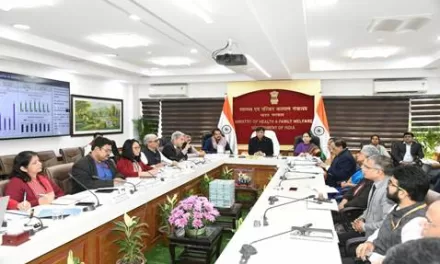A groundbreaking study conducted by the World Health Organization (WHO) sheds light on the substantial economic benefits of investing in the diagnosis and prevention of tuberculosis, underscoring the significance of robust public health policies in combating the disease.
According to the study, even modest increases in funding for tuberculosis measures yield remarkable returns, with every $1 invested generating returns of up to $39. Governments and researchers from Brazil, Georgia, Kenya, and South Africa collaborated on the survey, highlighting the potential gains from prioritizing tuberculosis interventions.
The findings serve as a timely reminder to governments and policymakers about the importance of bolstering public health initiatives, particularly in the wake of the COVID-19 pandemic. The WHO lauded the study for providing compelling economic arguments regarding the true costs of tuberculosis and the benefits of ramping up funding to accelerate diagnosis and preventive treatment efforts.
The study’s release coincides with the commitment made by world leaders during the United Nations General Assembly in September 2023 to intensify efforts to combat tuberculosis over the next five years. Serving as a roadmap for tuberculosis control measures, the study emphasizes two crucial actions: expanding screening efforts, especially among vulnerable populations, and providing tuberculosis preventive treatment (TPT) to individuals exposed to the disease.
TPT, described as a proven and effective intervention, significantly reduces the risk of developing tuberculosis among exposed individuals, emphasizing the importance of early intervention strategies.
The economic projections outlined in the study underscore the substantial returns on investment. In Brazil, for instance, a modest annual per capita investment increase of $0.28 could result in a return of $11 for every dollar allocated. Similarly, South Africa stands to benefit significantly, with a projected return of $39 for every dollar invested annually.
Despite the compelling economic rationale for investing in tuberculosis control, funding for combating the disease remains disproportionately low compared to its societal impact. The study underscores the high costs incurred by tuberculosis, not only in terms of healthcare expenses but also in broader societal costs.
Moreover, while access to tuberculosis diagnosis and treatment has improved globally, concerns persist regarding the slow implementation of preventive treatment and the rise of drug-resistant strains. Multidrug-resistant tuberculosis poses a significant public health threat, with a substantial portion of affected individuals lacking access to adequate treatment.
In response to these challenges, WHO Director-General Tedros Adhanom Ghebreyesus emphasized the urgent need for evidence-based interventions recommended by the WHO. He highlighted the potential to end the devastating impact of tuberculosis through concerted efforts, political commitment, and the deployment of existing tools and knowledge.
As the world grapples with the ongoing tuberculosis crisis, the WHO study serves as a clarion call for increased investment, concerted action, and unwavering commitment to eradicate one of the deadliest infectious diseases known to humankind.











